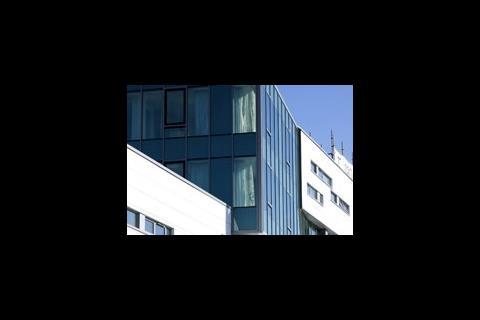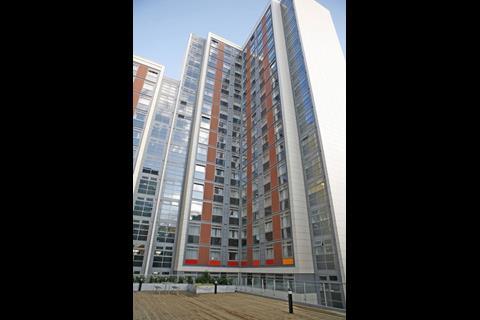We take a look at how one construction company has brought sustainability to the very heart of how it does business
Caledonian ��ɫ����TV Systems, based Newark, Nottinghamshire, is the UK’s largest modular construction company. Sustainability is now a key driver in the construction industry, with increasing Government legislation in the form of the Code for Sustainable Homes, BREEAM and Site Waste Management Plans, coupled with increasing public and private sector client demands for greener buildings. To meet and exceed these demands, Caledonian has reviewed its processes to ensure it operates sustainably.
Dave Turnbull, Caledonian’s Managing Director explains: “The off site construction market is most certainly growing. Whilst many of the reasons for this are for the benefits offered in terms of speed of build, improved quality and reduced disruption on site, it is also a construction method that is now widely recognised for the benefits it presents in terms of sustainability. As clients are increasingly looking for their projects to have strong environmental credentials, then we are in a strong position to deliver these requirements.”
Sustainable build
Initiatives such as BREEAM and the Code for Sustainable Homes are helping to drive further improvements in energy efficiency, the use of materials and reduction of waste in construction projects. These are both recognised hallmarks of a building’s achievement on the sustainability scale and high levels are coveted by clients.
Caledonian already achieves BREEAM Excellent ratings on many of its projects, and can build apartments to Level 4 of the Code for Sustainable Homes. Much of this is attributed to the materials and off site manufacturing processes adopted by Caledonian. As energy prices continue to rocket and carbon emissions are a global focus, reducing both energy consumption and associated emissions are key to building in a sustainable manner. By using steel frame construction within its modular form, Caledonian is able to reduce carbon emissions by approximately 40 kgC02/m2 when compared to current domestic housing. For its work on the MOD’s Project SLAM, comparing a modular and traditional three storey building, the modular version saved 33 tonnes of C02 over traditional methods - the equivalent to the carbon emitted by three people living in the UK for a whole year. If every similar building constructed in the UK was able to boast a similar figure, we would be going a long way to better C02 credentials.
Efficient use of materials
Materials are another area where considerable benefits can be achieved in terms of sustainability. The use of recycled materials within the factory build process enables Caledonian to reduce its demand on primary resources whilst helping reduce waste that would otherwise end up in landfill. Each module Caledonian builds contains around 25 per cent of recycled content.
At its manufacturing plant in Carlton on Trent, Caledonian has already achieved zero waste to landfill. Granted, it is easier to achieve in a factory than on a busy, cramped construction site, however on its construction sites the company also reaches an impressive 80 per cent recycling rate. Dave continues: “We quickly realised that we had an opportunity, and also a responsibility, to make the most of our permanent location. We have put in place stringent processes to ensure that all waste is segregated on site – this is not just the more common materials, such as plasterboard, timber, packaging etc, but right down to more specialised wastes such as silicon tubes. We will find alternative uses for waste from off cuts, for example, in our production process and for those materials that we can’t re-use we have identified local contractors that can recycle materials in a more cost effective way locally.
Working with the supply chain
Working in a permanent location enables Caledonian to enter into bulk buying with its supply chain. One of the most commonly wasted materials on the construction site is plasterboard. “Purchasing over a £1 million worth of the material, means that we have been able to order board that fits our own height and width requirements so we don’t generate any waste through cutting the board to fit our module design,” Dave adds. “At the same, for any waste that should arise from working around doors and windows we have developed a take-back scheme with our supplier to ensure that all is recycled – most commonly into cement.” In construction, we view packaging as much of a waste as we do in our everyday lives, and Caledonian has worked with its suppliers to develop take back schemes for packaging such as pallets and XX so they can be reused, rather than recycled or landfilled.
Continuous Improvement
“There is still the opportunity for us to make further improvements,” says Dave. “We are now working towards ISO 14001 and by doing so we are making a commitment to continual environmental improvements. These will include the introduction of an Environmental Management System to allow us to regularly review our performance and an environmental procurement process, where we select materials that minimise their environmental damage, or indeed have benefits. With our suppliers and contractors, we will also be introducing environmental criteria into contracts and service level agreements where possible, and giving positive weight to those who can demonstrate their commitment to protecting and improving the environment.”
We can’t ignore that the years of industrialisation around the world are beginning to show their impact on the planet. We all recognise that there aren’t the resources to sustain our activities in the same way, and we must make an effort to make changes to our existing practices to ensure future generations have the same, if not better, opportunities. As an industry generating 120 million tonnes of waste each year, and being the largest consumer of material resources we have the responsibility to make changes to how we build to lessen our own impact. Working throughout the supply chain, small changes will collectively make a significant difference.





























